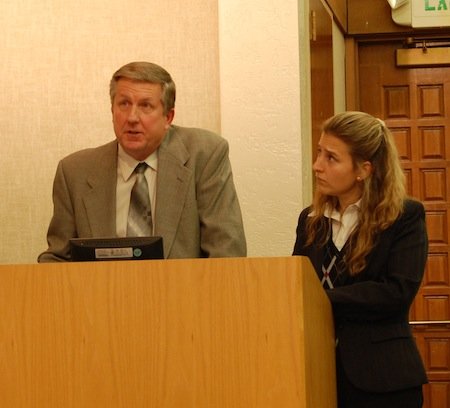The Gilroy City Council voted 4-3 Monday night to raise residents’ and business owners’ sewer rates more than 40 percent over the next five years, and city staff say the increases will help fund more than $30 million in repairs and replacements for the region’s wastewater system.
“It’s as if we need a new car because we have 300,000 miles on it,” said Councilman Bob Dillon, who sits on the South County Regional Wastewater Authority board.
“We’ve got the car, but we’ve got to keep it going,” chimed City Public Works Director Rick Smelser.
Council members Cat Tucker, Dion Bracco and Perry Woodward voted against the increase. Bracco said the rates will go up too much, and Tucker said they’ll climb for too long.
“I don’t agree with it. That’s a lot. That’s a big increase,” Bracco said.
Gilroy will feel the increases almost immediately, as the rates will rise 8 percent beginning March 1.
Tucker suggested raising the rates for just two years to gauge how much additional revenue the city would need from Gilroyans to fund wastewater maintenance, but City Administrator Tom Haglund said the upkeep was ongoing and required long-term financial backing.
“These are not individual, single fiscal-year projects,” Haglund said.
The city received approximately 30 letters of protest from property owners, falling well short of the roughly 6,500 (or 51 percent citywide) needed to halt the rate increases, according to the city.
Several residents spoke during Monday night’s public comment period, including James Marlowe, who questioned why the city needed to hit up property owners for revenue when money should have been set aside for long-term repairs.
“Obviously, that was not done or not done properly,” Marlowe said. “Or it was done, and it (the money) was used elsewhere.”
Smelser said the city “had been putting our money into day-to-day maintenance,” not long-term repairs and replacements.
South County’s wastewater plant, shared by Gilroy and Morgan Hill, was built in 1995, according to Smelser, who said the plant had reached an age when sewage pumps and other mechanisms needed full replacement.
Resident Suzanne Rodriguez suggested the city dig into its reserve funds – roughly $25 million – to fund maintenance and operations costs instead of raising rates.
“Why don’t you put some of the surplus towards some of these repairs?” Rodriguez said. “So things like this don’t happen.”
Council members Dillon, Mayor Al Pinheiro, Peter Arellano and Peter Leroe-Muñoz voted in favor of the increases.
Pinheiro cautioned that the decision wasn’t an easy one.
“We pay the same rates as you do,” he said to roughly 30 audience members at City Hall Monday night. “The last thing I want to do sitting up here is raise my rates also.”
Council says no to removing bee-friendly tree
A unanimous Council denied a homeowner’s request to remove a tree in front of her Swallow Lane home, despite the fact the woman says she’s dangerously allergic to the bees that it attracts.
What’s the reason? The two sides couldn’t agree how to share the cost of removing and replacing the tree, a Chinese Tallow, which was planted more than 10 years ago and likely is no longer on the city’s list of approved trees, according to City Senior Civil Engineer David Stubchaer.
Unofficial estimates placed the total cost between $400-500, but homeowner Karen Dameron said she couldn’t commit to sharing in the cost until it was learned exactly how much she’d have to shell out.
“There’s a lot more than just pulling out the tree at this point,” she said.
Councilman Dillon said, “It’s a human versus a tree. I don’t care about a tree, cut it down,” but later voted against removing it when a 50-50 cost-sharing measure couldn’t be reached.
Bill Dameron, Karen’s husband, said his wife is “very allergic to bees” and potentially could die if she is stung. He added there are “a cloud of bees” surrounding the tree each morning.
He said the city should pay to remove the tree – planted after they moved into the home in 1997 – because he and his wife didn’t have a chance to offer input on what kind of tree would go there.
“We had no voice in that,” Bill Dameron said, “It’s not our responsibility to pay for that.”
Mayor Pinheiro and Councilwoman Tucker said they feared setting a precedent for more and more residents to ask the city to remove trees.
Worth noting:
• The Council voted 5-2 to introduce the Election Campaign Finance ordinance, which will outlaw anonymous campaign donations.
• A 5-1 vote removed several east-side truck routes, but allowed one family business to be “grandfathered in” and continue parking their trucks on Forest Street. Councilman Bracco voted against eliminating the routes.
• The Council voted 7-0 to have city staff continue work on an entertainment ordinance that drafts new guidelines for dancing downtown.













